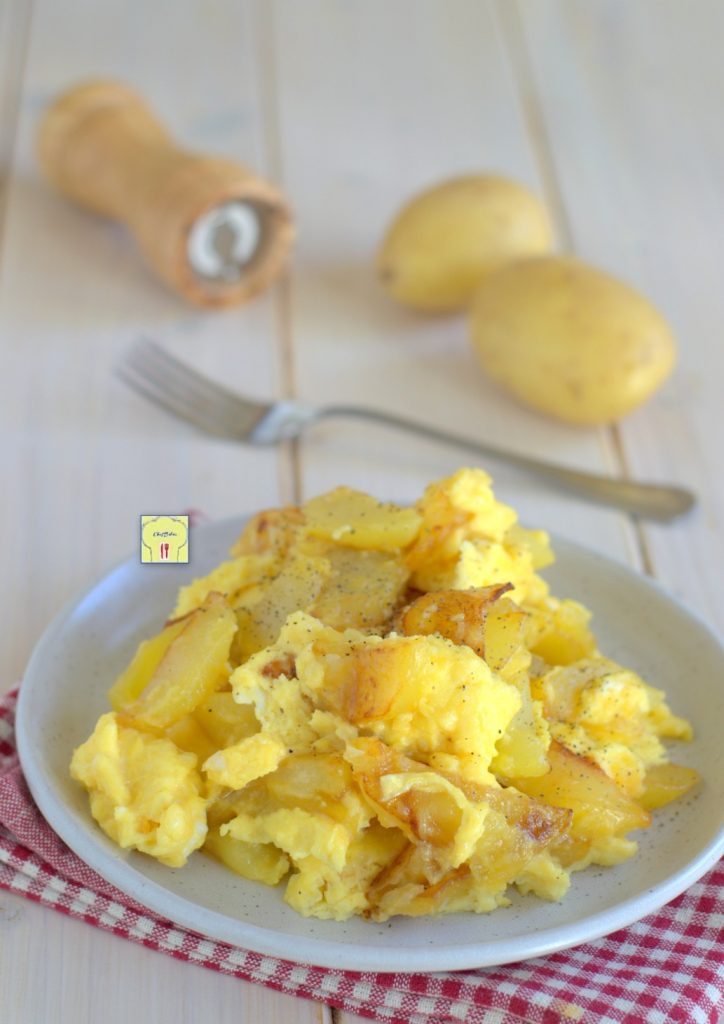Scrambled Sicilian potatoes are a tasty main dish based on eggs, easy to make and very appetizing.
An ancient and very simple recipe, with few ingredients and rich in taste, perfect for a quick and hearty meal, cooked in a single pan in two simple steps.
Read how to make scrambled Sicilian potatoes with the easy recipe you’ll find below, as usual, right after the photo 😉
You might also be interested in the following recipes:

- Difficulty: Very easy
- Cost: Very cheap
- Preparation time: 10 Minutes
- Portions: 4 – 6 people
- Cooking methods: Stovetop
- Cuisine: Italian
Ingredients
- 2.2 lbs potatoes
- 8 eggs
- 1.75 oz caciocavallo (grated, or pecorino, parmesan, or grana)
- peanut oil
- salt
- pepper
Preparation of Scrambled Sicilian Potatoes
Peel the potatoes and cut them into wedges, placing them in a colander.
Wash the wedges well under running water, let them drain and pat them dry with a clean cloth.
In a large pan, heat some oil and fry the potato wedges on all sides until golden.Remove them with a slotted spoon and let them dry of the excess oil by placing them on a plate lined with frying or kitchen absorbent paper. In a bowl, beat the egg yolks with salt and pepper, then add the grated cheese.
Remove the excess oil from the pan where you fried the potatoes and return it to the heat.Pour in the potato wedges and then the egg mixture, stirring gently with a spatula until the potatoes are completely covered by the mixture, which will have thickened and slightly browned.
Serve immediately, hot, your scrambled Sicilian potatoes.
Notes
Discover all other potato-based recipes by Chez Bibia by clicking HERE.
If you want to stay updated on all my recipes, without missing any, follow me on my Facebook page that you can find by clicking HERE.

